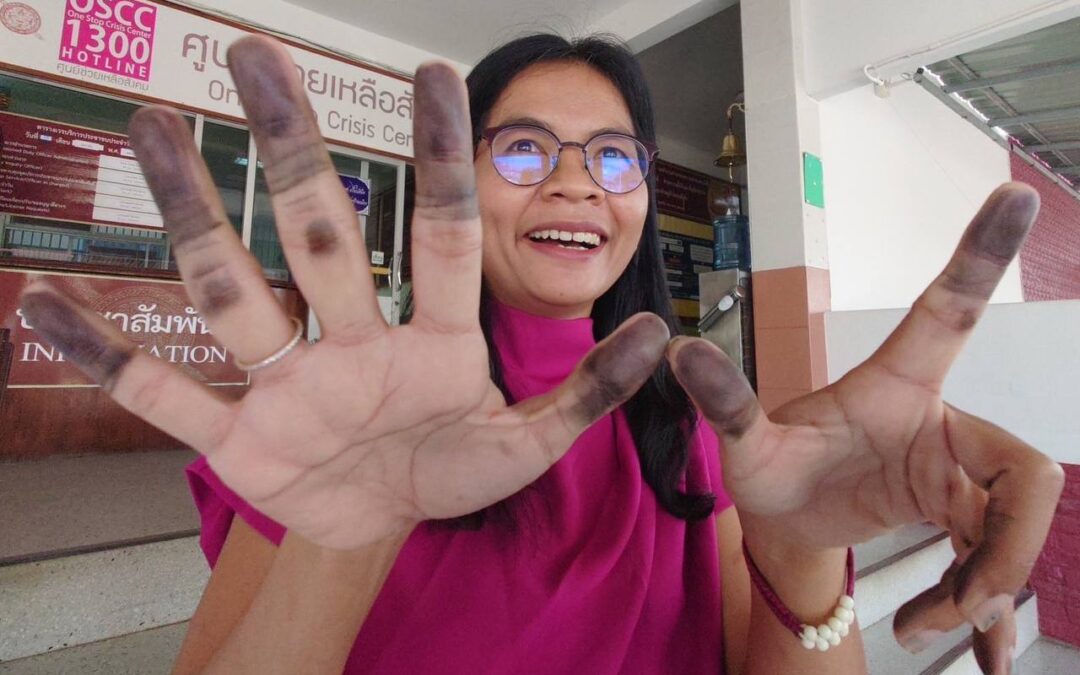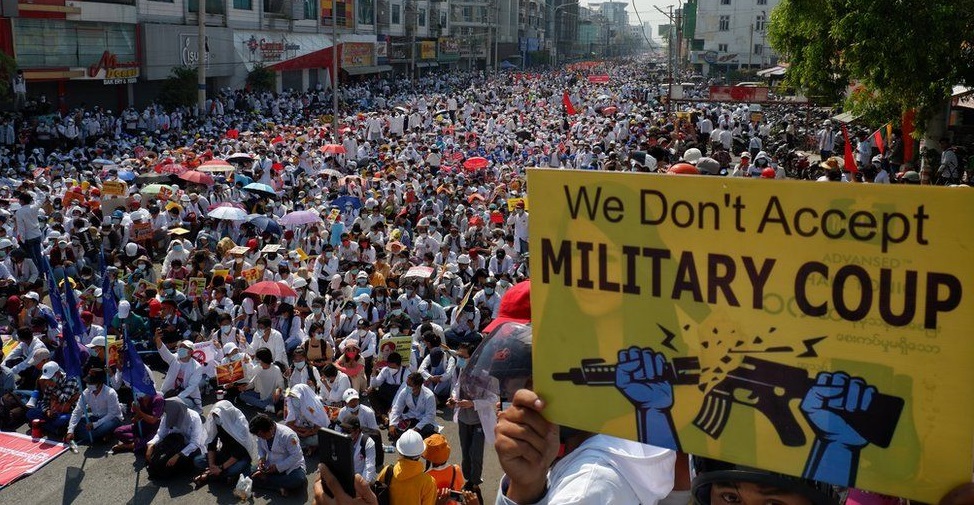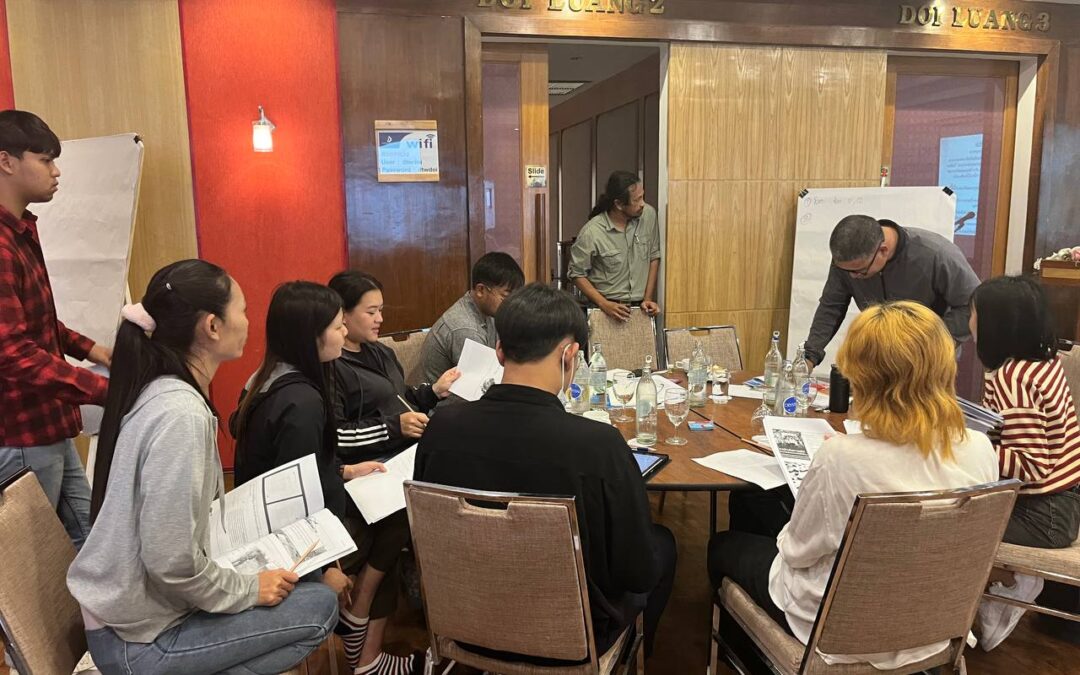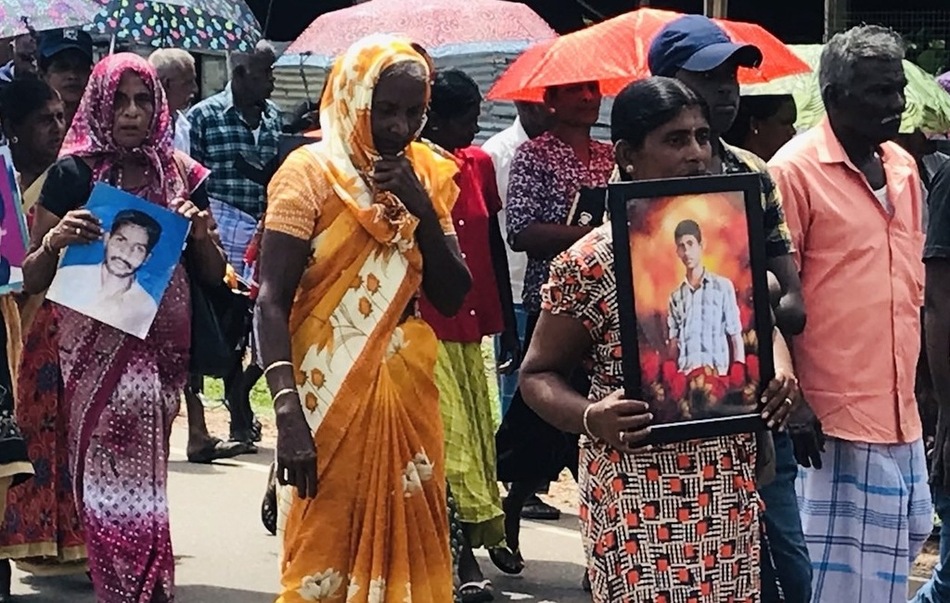
Jun 25, 2024
On 6 June, the International Commission of Jurists (ICJ) made a submission on the killing of LGBTIQ+ persons, in response to a call for inputs by the UN Special Rapporteur on extrajudicial, summary or arbitrary executions.

Feb 1, 2024
The International Commission of Jurists (ICJ) and Lawyers’ Rights Watch Canada (LRWC) intervene in the criminal defamation proceeding against Thai human rights defender Chutima Sidasathian.
Today, the ICJ and LRWC jointly submitted a legal brief (amicus curiae) to the Nakhon Ratchasima Provincial Court in the criminal defamation proceeding against Thai human rights defender Chutima Sidasathian. The brief argues that the use of criminal law is never appropriate for defamation and will constitute a violation of the right to freedom of expression when used to restrict speech for a purpose or in a manner not permissible under international human rights law. This is often the case in Strategic Lawsuits against Public Participation (SLAPP).
The proceeding in this particular case arises from three social media posts in which Chutima Sidasathian raised issues and questions about a community banking scandal in which villagers were allegedly forced to repay loans they had never received. She also highlighted legitimate and important public interest concerns about the management of the community financial institution and the relevant actions of its chair.
Furthermore, Chutima Sidasathian faces criminal defamation charges in four additional cases related to six more social media posts concerning the same community banking scandal.
The ICJ and LRWC legal brief aims to assist the Provincial Court in considering Thailand’s international legal obligations to ensure the right to freedom of expression, particularly under Article 19 of the International Covenant on Civil and Political Rights, acceded to by Thailand in 1996. This duty extends to all branches of government. The legal brief emphasizes that imposing criminal liability, such as imprisonment or heavy fines, has a “chilling effect” on the exercise of freedom of expression and undermines the work of human rights defenders seeking to bring human rights concerns to light.
Criminal defamation, under section 326 of the Thai Criminal Code, carries a maximum sentence of one year of imprisonment, a fine of up to 20,000 Baht (approx. USD 560), or both. Section 328 criminalizes defamation “by means of publication” with up to two years’ imprisonment and a fine of up to 200,000 Baht (approx. USD 5,600).
The trial in this case will be held between 6 and 8 February 2024 at Nakhon Ratchasima Provincial Court.
The submission in English can be downloaded here
The submission in Thai can be downloaded here
Background
Chutima Sidasathian is a former journalist from the online news outlet Phuketwan. In 2013, she was accused of criminally defaming the Royal Thai Navy after publishing an article that contained a paragraph reproduced from a Pulitzer award-winning Reuters article that alleged that “Thai naval forces” were complicit in the smuggling of Rohingya, a persecuted ethnic minority from Myanmar. In 2015, she was found not guilty on all counts.
For more on Thailand’s current protective framework against SLAPPs, refer to advocacy papers in English and Thai published by the ICJ and its partners in 2022.
Contact
Sanhawan Srisod, Associate International Legal Adviser, ICJ Asia Pacific Programme; e: sanhawan.srisod@icj.org

Feb 1, 2024 | Advocacy, News
As the absolute military rule enters its fourth year with an extension of the state of emergency, widespread and systematic human rights violations continue to be perpetrated daily against large number of peoples in communities throughout Myanmar with impunity, the International Commission of Jurists (ICJ) said today.
Arbitrary arrests and detentions and unsound convictions
Widespread gross human rights violations, many of which amount to crimes under international law, have taken place in a climate of near absolute impunity, with rampant arbitrary arrests, torture, detention and convictions for political reasons.
“Respect for human rights and the rule of law has disappeared three years after the coup d’état,” said Melissa Upreti, ICJ Regional Director for Asia and the Pacific. “The military junta has continued committing gross human rights violations, including by arbitrarily arresting, detaining, torturing and summarily executing those who have dared to oppose their illegitimate regime.”
The military junta has effectively weaponized its all-encompassing control over the legal and administrative system, with main targets including real or perceived political opponents, such as former government officials, human rights defenders, lawyers, journalists and ethnic and religious minorities.
Credible information indicates that at least 25,000 individuals have been arbitrarily arrested and detained since the start of the coup, often solely in relation to their exercise of their right to freedom of expression, peaceful assembly and association. Around 8,000 have been convicted based on spurious charges, and at least 119 political prisoners remain on death row.
These figures are a grim reminder of the extent to which the rule of law has completely collapsed in Myanmar. The convictions of people for political reasons have taken place in proceedings that flagrantly violate the essential fair trial and due process guarantees established under international law:
- Many have been summarily tried and convicted in closed-door proceedings either in civilian courts located in prisons, or in military courts;
- Lawyers have been obstructed from meeting and representing detainees, and have themselves been subject to arbitrary arrests and detention in relation to their work;
- Convictions are typically based on spurious and unsubstantiated charges, and “confessions” that were reportedly obtained through torture and cruel, inhuman or degrading treatment have been unlawfully relied on in these convictions; and
- Other violations include the suspension of habeas corpus; and particularly for closed-door military tribunal proceedings, violations of the right to be present at one’s trial, the right to be represented by counsel and the right to appeal.
Prison conditions and treatment of detainees
“Detainees are being held in prisons and detention facilities in horrific conditions that run afoul of international law and standards governing the treatment of prisoners. Violence, much of which amounts to torture, is a daily reality for detainees, with women and LGBT detainees being subjected to targeted forms of cruelty and abuse, as a form of punishment and to instill fear. Unlawful deaths in custody are a common occurrence and remain unaccounted for,” added Upreti.
There is credible evidence that detainees are being subjected to severe beatings with sticks, wire ropes and guns, electrocution, mock execution, and burying alive. Women and LGBT detainees have reported cases of rape, invasive strip searches, sexual harassment and mutilation of genitalia.
Furthermore, reports have emerged of the severe overcrowding, poor hygiene and sanitation, lack of access to healthcare and insufficient food in detention facilities. There are also credible reports of religious minorities being prohibited from practicing their religion while in detention.
Continued failure to restore democratic institutions and violence against civilians
These widespread systematic human rights violations are taking place against the backdrop of the military extending its unlawful declaration of a state of emergency on 31 January 2024 and prolonging its unlawful, arbitrary and abusive exercise of authority. This reneges on its promise to hold national elections in August 2023, which, even if they had been carried out, would likely have been shambolic amidst the ongoing crackdown on perceived political opponents.
Numerous separate armed conflicts continue to rage within the country, involving the Tatmadaw (Myanmar’s army) and anti-military armed groups. In carrying out its military operations, the military has unlawfully attacked civilians taking no part in hostilities, including direct, indiscriminate or disproportionate attacks on civilians and civilian objects from aerial bombings; mass extrajudicial executions of civilians and detained combatants and large-scale and intentional burning of civilian homes and buildings, including religious infrastructure. As noted by the Independent Investigative Mechanism for Myanmar (IIMM), these constitute “strong evidence indicating that serious international crimes are being inflicted against the people in Myanmar”.
Recommendations
“For Myanmar to return to the path of establishing itself as society based on rule of law, human rights and democracy, the first step is to end the state of emergency and all of the unlawful actions of the military regime that flow from it, including the prevailing impunity,” stressed Upreti. “The military regime and its members must be held accountable, the complicity that enables them must end and the human rights of all people in Myanmar must be fully restored.”
The ICJ reiterates its calls on the military to:
- Return the country to a civilian government and restore democracy;
- Immediately cease systematically violating the rights of persons for political reasons, including by releasing all people arbitrarily arrested and detained, and allowing the country’s institutions to function independently and impartially; and
- Immediately cease all practices of torture, extrajudicial killings, arbitrary detention, and flagrant fair trial violations.
The ICJ urges all UN Member States to:
- Keep up its pressure for the peaceful transfer of power to a democratically elected government;
- Increase support for coordinated documentation and accountability efforts by ensuring that the IIMM, Special Rapporteur on the situation of human rights in Myanmar and Office of the United Nations High Commissioner for Human Rights are given adequate resources to continue their important functions as effectively as possible; and
- Hold perpetrators of serious crimes under international law accountable, including by exercising universal jurisdiction over these crimes in domestic courts.
Contact
Melissa Upreti, ICJ Regional Director for Asia and the Pacific, e: melissa.upreti@icj.org
Daron Tan, ICJ Associate International Legal Adviser, e: daron.tan@icj.org
Further Reading
ICJ, “Myanmar: Two years after the coup, country further than ever from democracy and the rule of law”, 2 February 2023
ICJ, “Myanmar: A year after military takeover, no rule of law or judicial independence”, 10 February 2022

Jan 19, 2024 | News
On 15-16 January 2024, the International Commission of Jurists (ICJ), in cooperation with ARTICLE 19, organized a workshop in the province of Chiang Mai where over two dozen civil society actors and human rights defenders considered how to invoke and apply international law and standards related to land. The goal was to advocate for better protection of the human rights of affected individuals and communities across Thailand.
“Access to, use of, and control over land can have direct and indirect implications for the enjoyment of a range of human rights, particularly those under the International Covenant on the Economic, Social and Cultural Rights (ICESCR) to which Thailand is a party,” said Seree Nonthasoot, Member of the United Nations Committee on Economic, Social, and Cultural Rights (CESCR).
Thailand has a long-standing track record of failing to meet its human rights obligations related to land, especially concerning Indigenous Peoples, peasants, and other traditional communities, many of which have a material and spiritual relationship with their ancestral lands. Violations include the failure to ensure the security of tenure and meaningful and effective participation of communities in land-related decision-making processes.
Large-scale forced evictions conducted in violation of international law, inadequate and inconsistent compensation provided to affected communities and individuals due to land-related policies, and displacement of entire communities that are consequently struggling to access livelihoods without adequate support from the State have also been reported.
“When the social, cultural, spiritual, economic, environmental, and political value of land for communities is systematically disregarded by domestic law, international law and standards become important tools for victims and civil society to use in their advocacy for the protection of human rights. International mechanisms also offer crucial avenues for exposing serious human rights violations and seeking accountability,” added Sanhawan Srisod, ICJ’s Legal Adviser.
The workshop aimed to build participants’ documentation skills, strengthen their advocacy and promote networking. Further, the training explored different approaches and the benefits of engaging with UN human rights mechanisms for the protection of human rights in relation to land. The workshop provided a space for participants to discuss how civil society actors can utilize the outputs of these mechanisms in their activities, as well as how to effectively communicate with such mechanisms to ensure that their engagement is strategic and productive.
Background
Speakers included:
- Pairoj Ponpesh, Adviser, National Human Rights Commission of Thailand
- Pratubjit Neelapaijit, National Human Rights Officer, OHCHR’s Regional Office for Southeast Asia
- Sanhawan Srisod, Legal Adviser, ICJ
- Seree Nonthasoot, Member of the United Nations Committee on Economic, Social, and Cultural Rights
Unofficial translations of key CESCR’s jurisprudences into Thai were also provided and shared with the participants. These included:
For more information regarding the legal framework, policies, and practices related to land in the context of the establishment and development of special economic zones (SEZs) against international law and standards, available in English and Thai.
Contact:
Sanhawan Srisod, Associate International Legal Adviser, ICJ Asia Pacific Programme; e: sanhawan.srisod@icj.org

Jan 12, 2024 | Advocacy, News
The ICJ considers the government’s proposed bill to establish a Commission for Truth, Unity and Reconciliation unlikely to advance accountability for perpetrators and justice for victims and survivors of the 26-year-long armed conflict that ended in 2009 and involved widespread atrocities.
The ICJ is concerned that the lack of consultation with victim communities and the continued neglect of their demands deprive the Bill of legitimacy.
A draft Bill on Commission for Truth, Unity and Reconciliation was gazetted on 1 January 2024, to establish the Commission, amidst a climate of impunity for past human rights violations and abuses and intimidation of victim communities in the North and East of the country.
“Considering the repressive political climate in Sri Lanka, and the absence of the conditions that are necessary to ensure the success of the proposed Commission for Truth, Unity and Reconciliation, the Bill appears to be more of a legislative manoeuvre aimed at deflecting the attention of the Human Rights Council and removing Sri Lanka from further scrutiny rather than a genuine accountability measure.” said Melissa Upreti, ICJ’s Asia Director.
The Bill suffers from a lack of transparency regarding the consultation process and non-acceptance by victim communities.
If adopted, it would empower the Attorney-General to prosecute cases where the Commission makes a finding of responsibility for an offence. The ICJ is concerned that in the past the Attorney-General’s office has assumed potentially conflicting dual roles of legal advisor for the State and prosecutor of offences allegedly committed by State officials. The ICJ has previously noted how the Department had mishandled cases relating to serious human rights violations and abuses which has contributed to a climate of mistrust. The ICJ recalls that the years since the end of the conflict have been marked by near total impunity for conflict era crimes, owing to the failure of the Attorney-General’s Department to act to hold to account those responsible for serious crimes under international law.
The Bill provides that appointments to the Commission will be made by the President upon the recommendation of the Constitutional Council. The ICJ has previously noted that the governing party holds a majority in the Constitutional Council and that a majority of members are parliamentarians with only three members appointed from outside. Further, a representative of the smaller political parties (including parliamentarians representing the North and East) is yet to be appointed to the Council. The ICJ is concerned that these arrangements are conducive to creating a Commission that lacks independence and may be subjected to political pressures and considerations in carrying out its work. The situation is exacerbated by the Constitutional Council approving the appointment of the current Acting Inspector General of Police who had in December 2023 been held directly responsible for torture by the Supreme Court of Sri Lanka.
The Bill would further authorize the proposed Commission to seek the assistance of the police to conduct investigations and liaise with the National Authority for the Protection of Victims of Crime and Witnesses, which in turn depends on the police to provide support for the protection of victims and witnesses. However, a number of police officials have allegedly been responsible for recent cases of torture and ill-treatment and extra judicial killings. The government’s failure to initiate thorough and impartial investigations into these cases and to bring perpetrators to justice has deepened the public’s mistrust of the police and prosecuting agencies.
Successive UN Human Rights Council Resolutions on Sri Lanka have called for the establishment of transitional justice mechanisms with the active participation of all stakeholders, including women who have been at the forefront in leading victim demands for accountability, particularly for cases of enforced disappearance. Yet, protesting mothers and female family members of the disappeared are routinely detained, intimidated or put under surveillance and their voices suppressed.
The Bill lacks also provisions that are gender responsive and makes the establishment of mechanisms and procedures to address women’s concerns discretionary.
Existing transitional justice institutions such as the Office of Missing Persons (OMP) and the Office for Reparations have been ineffective. As underscored by the UN Office of the High Commissioner for Human Rights, the OMP has failed to earn the trust of victims and their representatives. As recently observed by the High Commissioner, there has been little to no development regarding cases of past human rights violations and abuses.
“The victims of Sri Lanka’s 26-year armed conflict, replete with atrocities, have been forced to wait too long to learn the truth about their loved ones and to be granted justice. When the UN Human Rights Council considers a new resolution on Sri Lanka later this year, it must avoid blind acceptance of Sri Lanka’s flawed transitional justice process and institutions and adopt an approach that genuinely puts the interests of victims and survivors first,” added Upreti.
Background
The draft Bill provides for the establishment of the Commission with a Head Office based in Colombo and Regional Offices as necessary (clause 2). The Commission will have between seven to twenty-one members, who are to be appointed by the President upon recommendation by the Constitutional Council (clause 3). The term of the Commissioners is five years (unless removed earlier) and the President can extend their term on an yearly basis for an additional two years (clause 9). The Commission may conduct public or closed sittings as necessary (clause 7).
The stated objectives of the Commission are to investigate, inquire and make recommendations in respect of complaints or allegations or reports relating to damage or harm caused to persons or property, loss of life or alleged violation of human rights which occurred during the conflict in the Northern and Eastern Provinces between 1983 to 2009 or connected to such period or its aftermath and has a mandate to promote truth telling and make recommendations for reparations, and non – recurrence (clause 12). If it appears to the Commission that an offence under any Sri Lankan law has been committed it may refer the matter to the relevant law enforcement or prosecuting authorities for further investigation and necessary action (clause 13 (zd)). The Commission does not have the mandate to determine civil or criminal liability of any person (Clause 16 (1)) and instead the onus is on the Attorney-General to institute criminal proceedings regarding an offence in Court based on material collected by the Commission (clause 16 (2)).
The Bill also provides for the establishment of a Victim and Witness Protection Division (clause 28) and a Data Management Division (clause 29). The Commission may also appoint any mechanisms and procedure to address requirements related to women, children, persons with disabilities and disadvantaged groups and advisors relating to specific issues (clause 30).
The Bill also provides for the appointment of an advisory panel to advise the Commission on matters referred to the Panel (clause 32). This panel is to consist of a minimum of ten members appointed by the President on the Commission’s recommendation. Clause 39 of the Bill states that within one month of the interim report of the Commission being published the President shall appoint a monitoring committee to implement the findings of the report. Clause 40 states that such Committee be comprised of 11 members, of which six members are to be recommended by the Constitutional Council while the others are members ex-officio. Ex-officio members include the Secretaries of the Ministries of Defence, Justice, Law & Order, Finance, Public Administration & Women, Child Affairs and Social Empowerment or their nominees. The Committee is expected so submit bi-annual plans evaluating the implementation of recommendations of the TUR Commission and other previous Commissions of Inquiry.
Clause 49 of the Bill states that the Commission can defer its investigation regarding any disappearance of a person/s if requested to do so by the OMP until such time it can be resumed without compromising inquiries conducted by the OMP.
In September 2023, the ICJ joined eight other international human rights organizations in expressing their grave reservations about the proposed Truth, Unity and Reconciliation Commission and setting out prerequisites to be addressed before appointing any new Commission. The concerns relate to Sri Lanka’s legacy of failed commissions, lack of a conducive environment and confidence building efforts, lack of meaningful consultations with victim communities, the failure of domestic transitional justice institutions, and the blocking of prosecutions. None of these concerns have been addressed to date, which bring into question the newly proposed Commission’s likelihood of serving as an effective mechanism for accountability.









